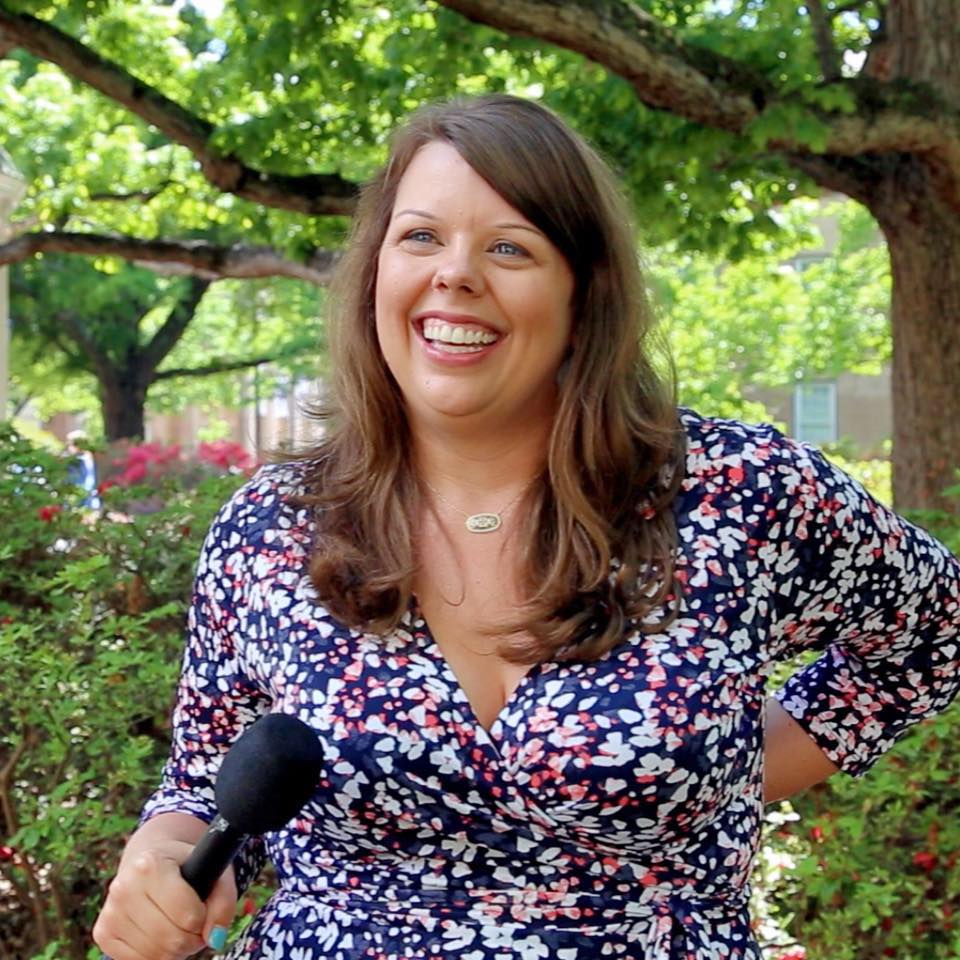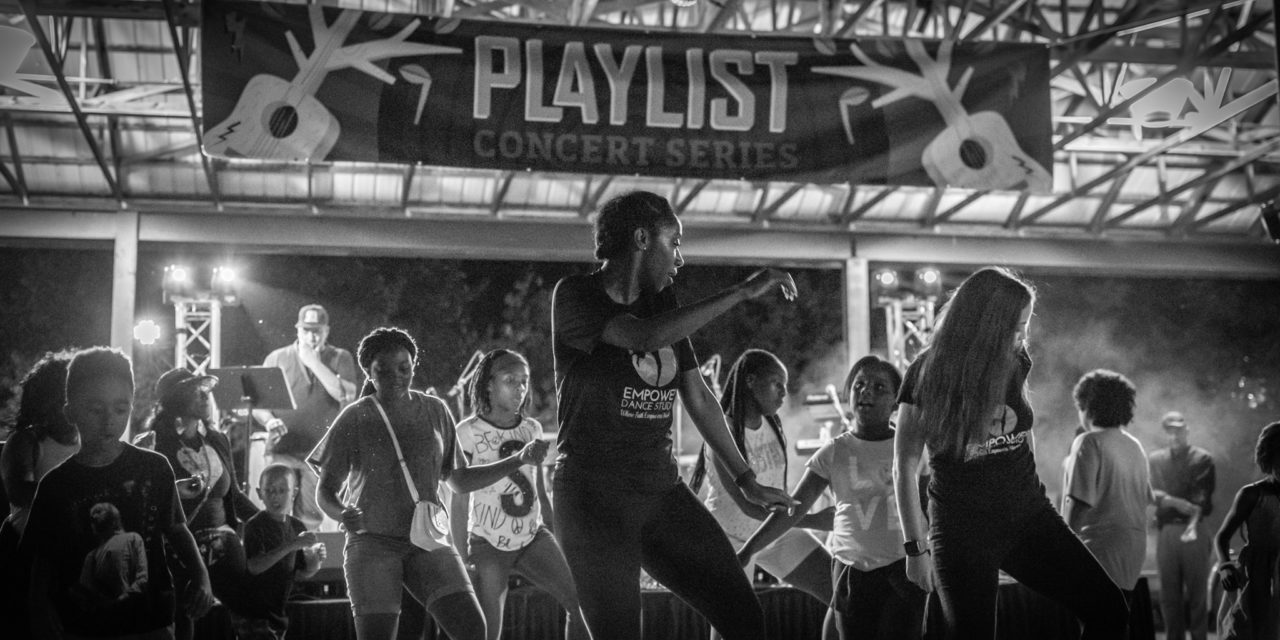Since the start of this pandemic, there’s been plenty of worry to go around. About our most vulnerable populations. About the sick and the grieving. About front line workers. About small businesses of all types. About families and educators, struggling to adjust to their new realities and to explain the inexplicable to young kids.
But I have spent perhaps a disproportionate amount of time stressing about the future of live arts.
My husband and I moved downtown 16 months ago to enjoy easy access to the restaurants, the bars, and the Durham Bulls – but we really love live arts. Blockbuster Broadway shows at DPAC. Comedians at The Carolina Theatre. A set by a singer-songwriter inside the intimate setting of The Oakhouse. Open-mic night at The Blue Note Grill. A thought-provoking Bulldog Ensemble Theater production at The Fruit.
I am also proud to be a small part of the local live arts scene. As the singer in acoustic cover duo Penny’s Bend (named for the nature preserve along the Eno River), I’ve performed at fundraisers, wine dinners, the Durham Night Market, and private parties.
We are such a sports-obsessed culture with strong allegiances to teams, from the Blue Devils to the Hurricanes. I don’t worry about the return of live sports audiences – they’ll be back, eventually, when it’s safe. And until then, they will continue to wear their team shirts and hats and intently keep up with the latest on recruits, trades, and coaching changes.
But what about live arts? Might we get used to streaming concerts on our screens? Will the live arts scene ever fully recover?
I called Tess Mangum, founder and CEO of Durham-based Sonic Pie Productions. I have known Tess – a seventh-generation North Carolinian – for years, and she and her team have done wonders for our local arts scene, curating and running sound for concerts at Golden Belt and Durham Central Park and festivals like Hippie Fest and Beericana. (They also represent artist Kamara Thomas– I love her music!)
Tess told me she hasn’t gone this long without either hearing or curating live music in her entire adult life. “It feels a bit like those zombie apocalypse TV shows,” she shared.
While many artists are performing livestreamed sets with a virtual tip jar, Tess says it’s not the same. “Forty percent of performing is the band, and 60 percent is the audience – dancing, talking. It’s a reciprocal relationship. The audience gives an energy to the musicians that the musicians can then give right back.” (On a more positive note, going virtual means that you have the ability to reach more people in far-off locations. Tess produced a Curtis Eller concert earlier this month – part of the Durham from the Heart weekly series through Downtown Durham Inc. – that was seen by fans in 11 countries.)
It didn’t surprise me, but I still visibly cringed when Tess proclaimed, “We’re done for the year.” The Event Safety Alliance projects that live music will follow the return of live sporting events, just as I suspected. Outdoor venues will obviously make a comeback before indoor ones. (At least in a climate like ours, folks can gather outside nine months of the year!)
Prior to March, this year – Sonic Pie’s seventh – was looking fantastic for Tess and her team of contractors, who are now “hibernating.” They had lined up lots of contracts and plenty of repeat clients. Tess was excited to have just hired her first female sound engineer. And then, the bottom fell out. PPP funds helped a bit, but Sonic Pie team members are missing their other sources of work, too – nobody is running sound at churches or at school shows, for example, and tending bar for extra cash is not an option right now.
“The live concerts we work are ‘church’ to me, where as many as four generations of people gather under the shared love of a band or genre,” Tess said. “Gay, straight, black, brown, button down – you name it. Last year, a man we’d never met came to Durham all the way from Ottawa to see a band I’d been working for a year to get here. Without the work, we’re also missing our community.”
Tess said that she is now seeing announcements of summer and fall 2021 shows, “but they’re at the very large, corporate-controlled venues. This means hundreds of riggers, loaders, security, sound engineers, tour bus drivers, caterers, stage managers, and other production professionals will have work, but thousands won’t. … Will there be any independent, eclectic venues, festivals, and presenters left standing?”
By this point in our conversation, I was desperate to find a bright spot, when Tess said: “The good thing that can come out of this is the resurgence of a strong civil rights movement. … This time of quarantine and self-reflection – I want to see what albums come out of that.”
Then, Tess threw in a fun twist: She told me that since the beginning of the pandemic, the word “pivot” had been haunting her, but she couldn’t figure out how she could adjust her business model. It seemed impossible, given that large crowds can’t gather, and her entire mission revolves around making swarms of people feel entertained and happy. Until she saw a photo of a home that was for sale – a 1935 Durham farmhouse on a half-acre on Pickett Road.
Tess bought it. She figured Sonic Pie Productions already has PA systems. Staging. Lavalier mics. The ability to stream. Why not host micro weddings, receptions, birthday parties, intimate festivals? Why not give folks a way to quietly celebrate the joyous occasions in their lives? Why not give herself the pleasure of watching an engaged audience member, once again, tap their toes to the sound of a fiddle or a banjo?
She’ll be taking reservations within a month.
How You Can Help
Want to help our live arts scene? Stream local music. Buy local music. Share your love of a particular song or band on social media. Donate directly to artists and music-industry workers via Venmo, PayPal, Cash App, or Patreon. Buy their merchandise. Cook them food or bake for them – the ultimate symbol of love. Tune into artists’ livestreams. Check artists’ and venues’ websites often for GoFundMe campaigns and other ways to lend a hand. They’ll let you know what they need.
 After a decade as an editor with various NC magazines, Andrea Cash launched her own creative services company, Andrea Cash Creative, in 2017. She helps small businesses and organizations in Durham and Chapel Hill with content strategy and creation, branding, PR, social media, and video and event production.
After a decade as an editor with various NC magazines, Andrea Cash launched her own creative services company, Andrea Cash Creative, in 2017. She helps small businesses and organizations in Durham and Chapel Hill with content strategy and creation, branding, PR, social media, and video and event production.
Andrea is passionate about community building, doing work that benefits the greater good and helping entrepreneurs grow their business in a purposeful way. Outside of work, Andrea sings in her cover band Penny’s Bend, plays tennis as often as she can, volunteers with Habitat for Humanity of Orange County and Book Harvest, and runs communications for grassroots progressive group FLIP NC.
Chapelboro.com does not charge subscription fees. You can support local journalism and our mission to serve the community. Contribute today – every single dollar matters.








